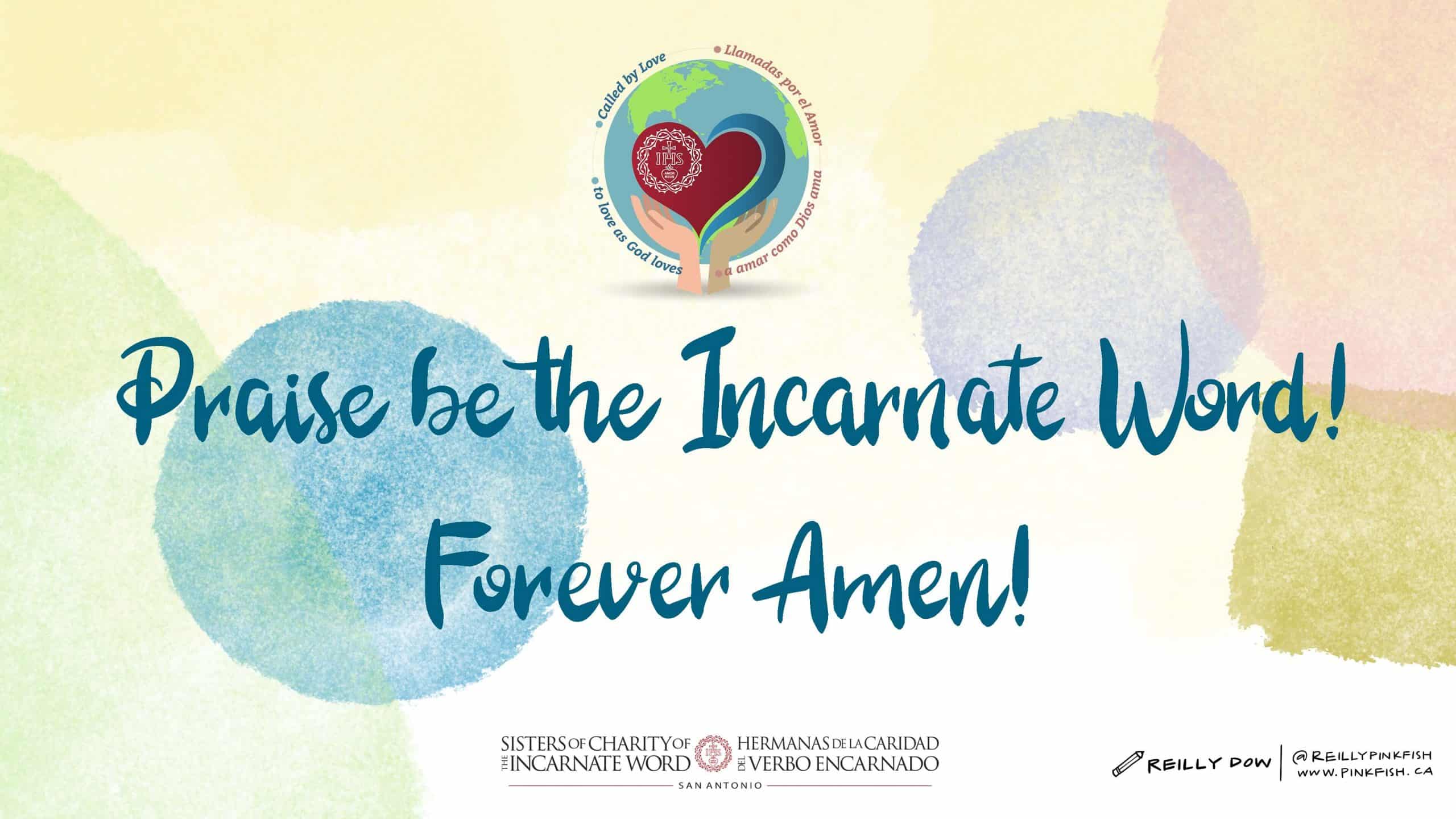Unleash the Potential: Incarnate Word as a Catalyst for Change explores the transformative power of a core theological concept. This investigation delves into the multifaceted interpretations of “Incarnate Word” across religious and philosophical landscapes, examining its historical impact and contemporary relevance. From inspiring social reform movements to fostering individual growth, the study reveals how this concept continues to shape ethical frameworks and inspire positive change worldwide.
The exploration will analyze specific instances where the Incarnate Word has demonstrably improved lives, charting its evolving influence across diverse settings. Challenges and obstacles encountered in applying these principles will be addressed, along with strategies for overcoming resistance to change. Finally, the piece will project potential future applications of the Incarnate Word in various fields, offering guidelines for its effective and impactful use.
Incarnate Word: Defining the Concept
The phrase “Incarnate Word” carries profound theological and philosophical weight, signifying the belief that God became fully human in the person of Jesus Christ. This concept, central to Christian theology, transcends simple definition, encompassing diverse interpretations across various denominations and philosophical perspectives.
Interpretations of the Incarnate Word
Throughout history, the Incarnate Word has been understood in multifaceted ways. For some, it emphasizes God’s accessibility and immanence, bridging the gap between the divine and the human. Others focus on the transformative power of God’s love manifested in human form, offering salvation and redemption. Still others emphasize the ethical implications, highlighting the importance of embodying divine qualities like compassion, justice, and love in human actions.
Early Church Fathers like Irenaeus and Athanasius extensively debated and shaped the understanding of the Incarnation, emphasizing the full divinity and full humanity of Christ. Later theologians, including Augustine and Aquinas, built upon these foundations, exploring the philosophical implications of the union of two natures in one person. Modern theologians continue to grapple with the complexities of the Incarnation, considering its implications for social justice, liberation theology, and interfaith dialogue.
Symbolic Significance of the Incarnate Word
The symbolic significance of the Incarnate Word is immense. The image of God becoming human signifies a profound act of self-giving love, demonstrating God’s intimate concern for humanity. It also suggests that the divine is not distant or unreachable but intimately involved in the human condition. The Incarnation further implies that the material world is not inherently evil but rather a realm where God’s presence is powerfully revealed.
Incarnate Word as a Catalyst: Mechanisms of Change: Unleash The Potential: Incarnate Word As A Catalyst For Change
The belief in the Incarnate Word has served as a powerful catalyst for social and political reform throughout history, inspiring movements for justice, equality, and peace. This influence stems from the ethical principles embedded within the concept, which promote compassion, empathy, and a commitment to alleviating human suffering.
Examples of the Incarnate Word Inspiring Social Change
Numerous individuals and groups have leveraged the concept of the Incarnate Word to effect positive change. The early Christian Church’s commitment to caring for the poor and marginalized is a prime example. More recently, liberation theology, rooted in the Incarnation, has championed the rights of the oppressed and advocated for social justice in Latin America and beyond. Figures like Martin Luther King Jr., drawing upon the teachings of Jesus, mobilized the Civil Rights Movement in the United States, exemplifying the transformative power of faith-based activism.
In this topic, you find that Magic vs Bucks: A Tale of Unexpected Dominance! is very useful.
Ethical Frameworks Derived from the Incarnate Word
The ethical framework derived from the Incarnate Word emphasizes the inherent dignity of every human being, created in the image of God. This leads to principles of love, compassion, justice, and solidarity. Actions inspired by the Incarnation are guided by a commitment to serving others, particularly the most vulnerable members of society, and working towards a more just and equitable world.
Different Approaches to Using the Incarnate Word as a Catalyst

| Approach | Focus | Methods | Examples |
|---|---|---|---|
| Liberation Theology | Social Justice, Oppression | Advocacy, Community Organizing | Latin American liberation movements |
| Peacebuilding | Reconciliation, Non-violence | Dialogue, Mediation | Interfaith initiatives, conflict resolution efforts |
| Social Service | Direct Aid, Poverty Alleviation | Charity work, community development | Food banks, homeless shelters |
| Environmental Stewardship | Care for Creation | Sustainable practices, advocacy | Environmental protection organizations |
Potential Unleashed: Manifestations of Transformation
The impact of the Incarnate Word’s principles on people’s lives is evident in countless historical and contemporary examples. These manifestations showcase the concept’s enduring power to foster compassion, empathy, and justice across diverse contexts.
Chronological Instances of Positive Impact
From the early Church’s establishment of hospitals and hospices to modern-day initiatives addressing poverty and inequality, the belief in the Incarnation has consistently inspired tangible improvements in people’s lives. The abolition of slavery, the fight for women’s suffrage, and the advancement of human rights all bear the imprint of this belief. Each historical period offers unique examples, illustrating the evolving ways in which the Incarnate Word’s principles have been applied to address the specific challenges of its time.
Challenges and Obstacles: Navigating Resistance to Change
The application of the Incarnate Word’s principles to effect change has not been without its challenges. Historical and contemporary resistance stems from various sources, including ideological conflicts, political power structures, and societal biases.
Strategies for Overcoming Resistance
Overcoming resistance requires a multifaceted approach. Dialogue and education are crucial in fostering understanding and challenging misconceptions. Building coalitions and alliances across diverse groups can amplify the impact of change initiatives. Non-violent resistance, inspired by the life and teachings of Jesus, remains a powerful tool for social transformation. Furthermore, a commitment to persistent advocacy and unwavering faith can sustain efforts in the face of setbacks.
Addressing Potential Obstacles, Unleash the Potential: Incarnate Word as a Catalyst for Change
A plan to address potential obstacles would include proactive strategies for conflict resolution, community engagement, and resource mobilization. Careful consideration of cultural contexts and the specific needs of affected communities is vital. Regular evaluation and adaptation of strategies are essential to ensure the effectiveness of initiatives based on the Incarnate Word.
Illustrative Examples: Visual Representation of Impact

Image of Positive Impact
Imagine a vibrant mural depicting a community garden flourishing in the midst of a formerly desolate urban landscape. The colors are rich and earthy, reflecting the abundance of life that has sprung forth. Faces of diverse individuals, young and old, are interwoven into the design, their expressions reflecting joy, hope, and collaboration. The mural’s texture is rough, mirroring the resilience of the community, yet the overall effect is one of beauty and renewal.
The scent of freshly tilled soil and blooming flowers seems to emanate from the painting, evoking a sense of peace and revitalization.
Visual Metaphor of Transformative Power
A single seed, small and seemingly insignificant, planted in barren ground, represents the initial act of faith and commitment. As time passes, the seed sprouts, pushing through the hard earth, symbolizing the challenges and obstacles faced in the pursuit of change. Gradually, a strong, resilient plant emerges, bearing abundant fruit, signifying the transformative power of the Incarnate Word, yielding a bountiful harvest of positive change and social justice.
Future Applications: Extending the Influence of the Incarnate Word
The potential applications of the Incarnate Word as a catalyst for change are vast and extend across various fields. Its principles offer a powerful framework for addressing contemporary challenges and shaping a more just and compassionate future.
Future Applications in Various Fields
In education, the Incarnate Word can inspire inclusive pedagogies that foster empathy and critical thinking. In healthcare, it can promote holistic approaches that prioritize the dignity and well-being of patients. In environmentalism, it can strengthen commitments to sustainable practices and the protection of creation. Across all fields, the Incarnation’s emphasis on compassion, justice, and love offers a powerful ethical compass for navigating complex issues and promoting positive change.
Guidelines for Utilizing the Incarnate Word for Positive Change
Effective utilization of the Incarnate Word requires a commitment to authentic dialogue, collaborative action, and a deep understanding of the contexts in which it is applied. Prioritizing the needs of the most vulnerable, promoting inclusivity, and fostering a spirit of humility are essential. Regular reflection and evaluation are crucial for ensuring that initiatives align with the core principles of the Incarnation and achieve their intended goals.
Ultimately, “Unleash the Potential: Incarnate Word as a Catalyst for Change” showcases the enduring and evolving influence of this central theological concept. By examining both its historical manifestations and potential future applications, this study underscores the ongoing power of the Incarnate Word to inspire positive transformation across societies and individual lives. The analysis presented highlights not only the concept’s transformative capacity but also the persistent challenges and strategies involved in harnessing its potential for a more just and compassionate world.



